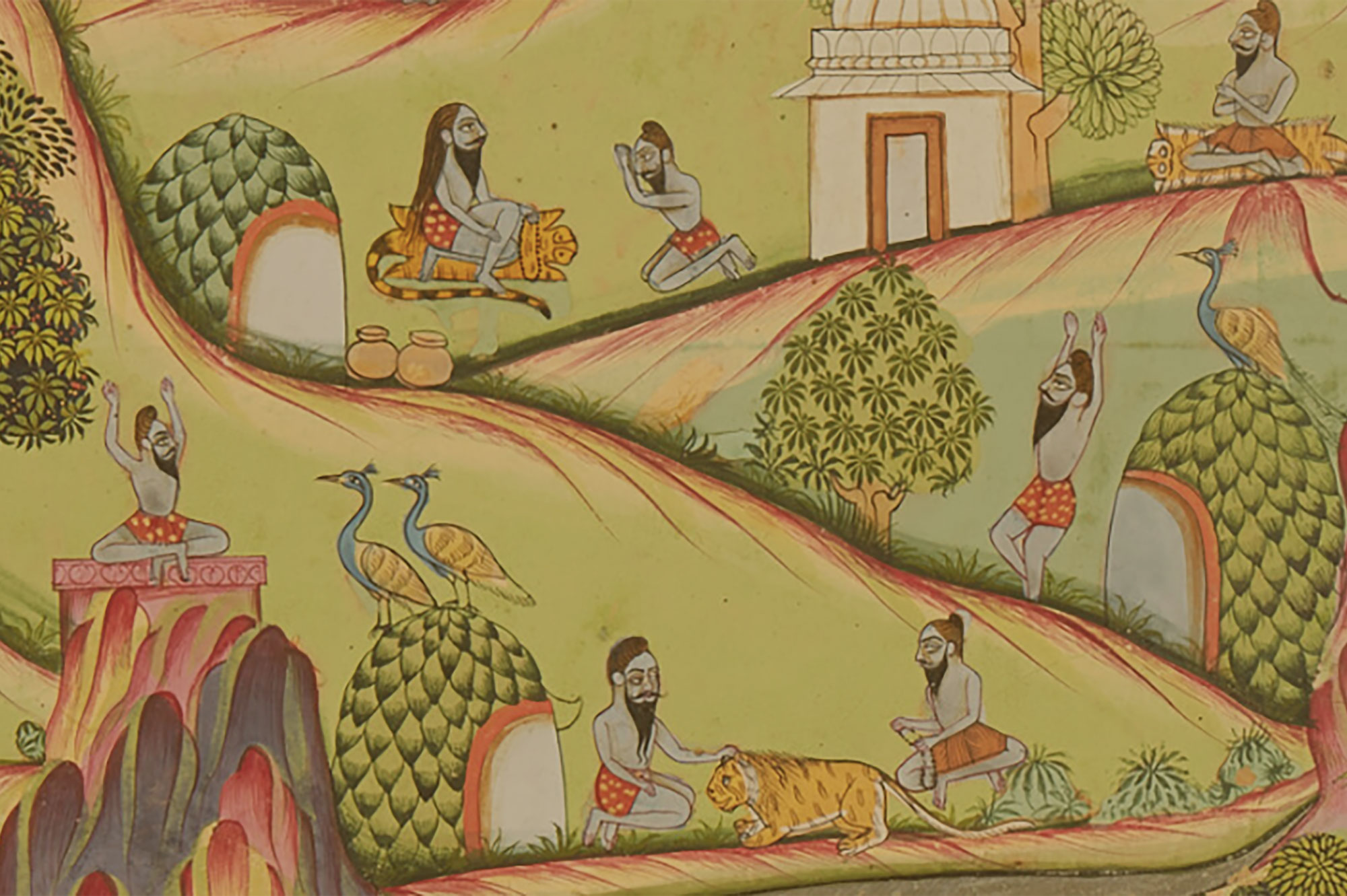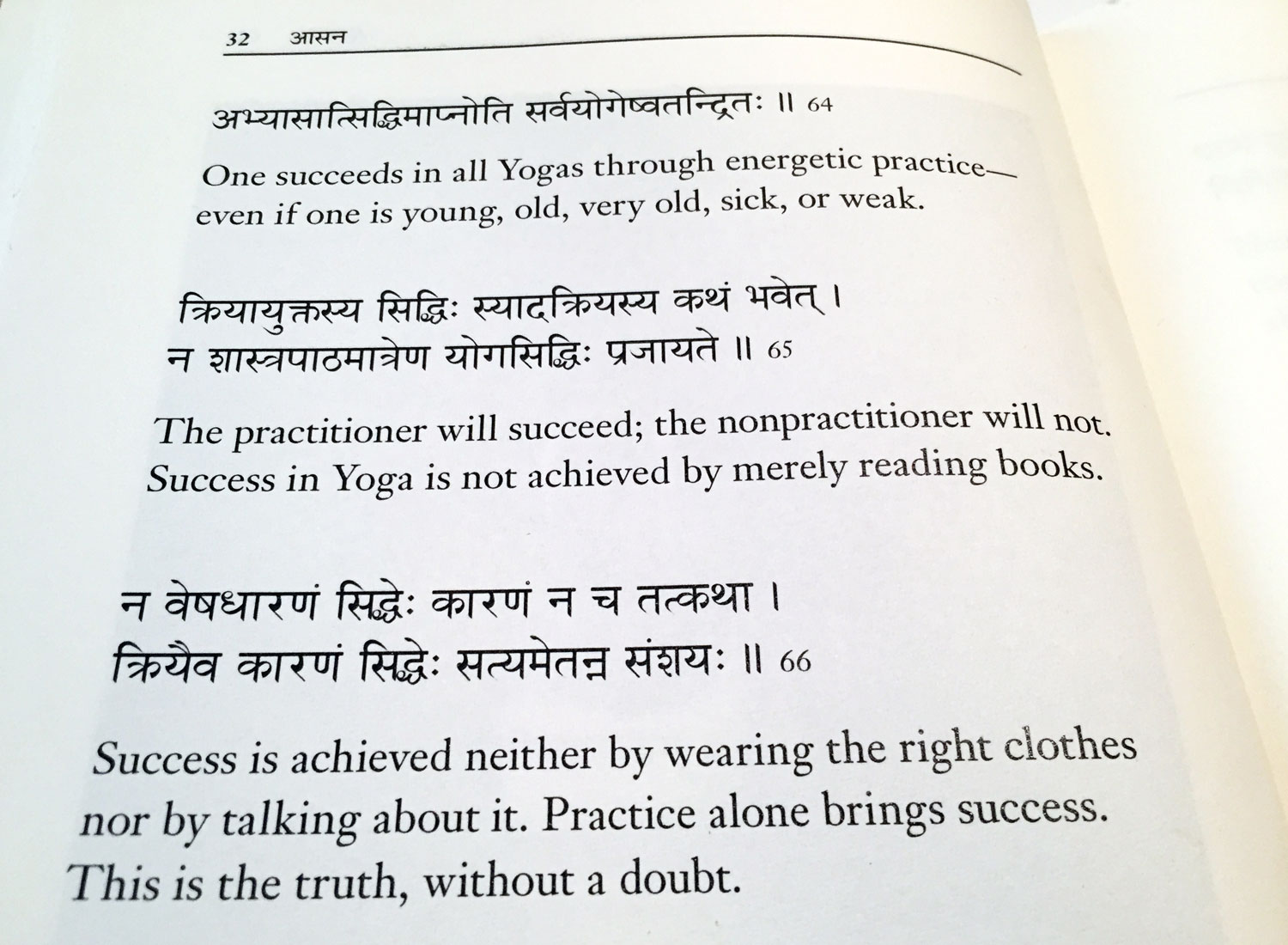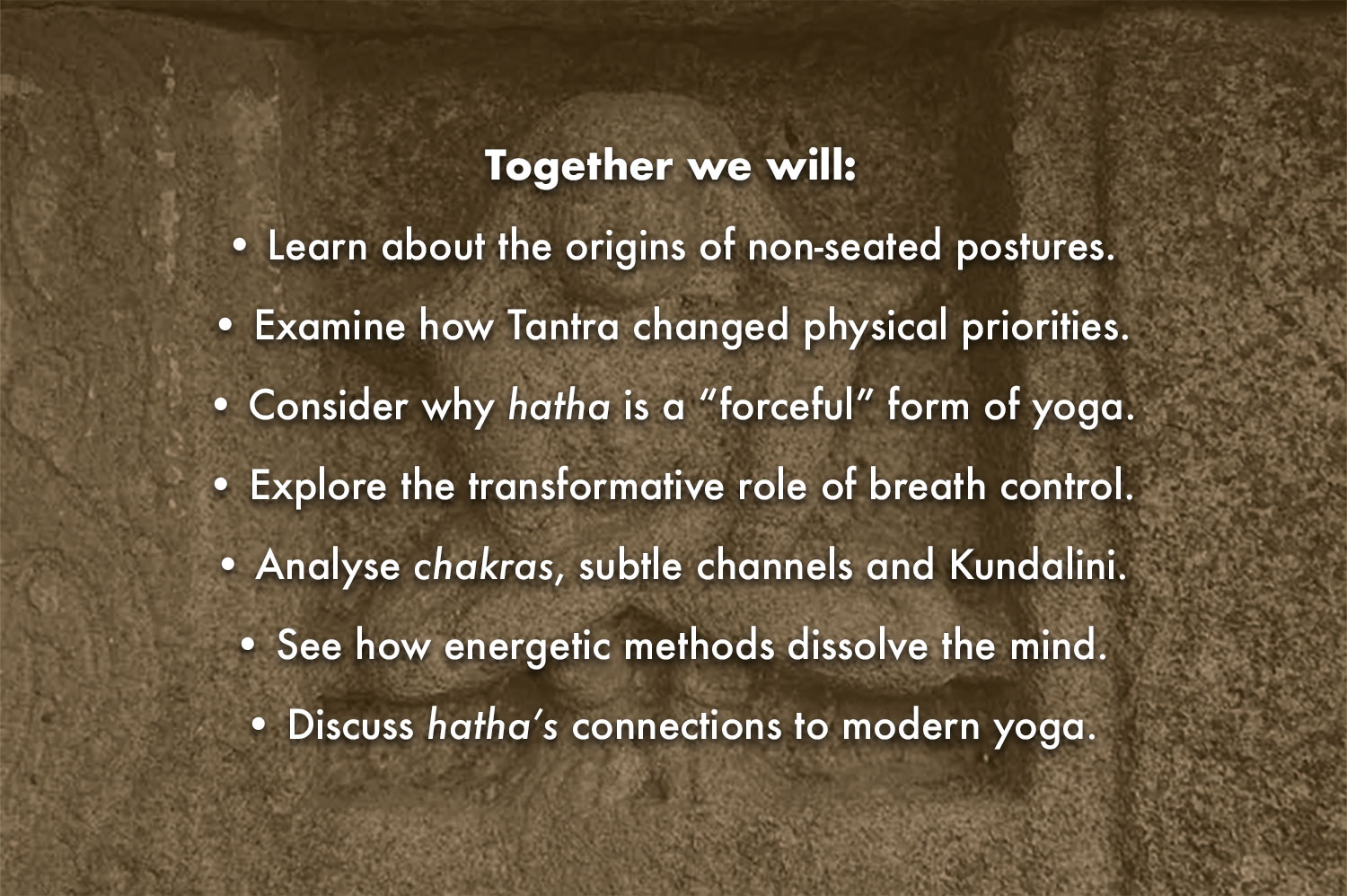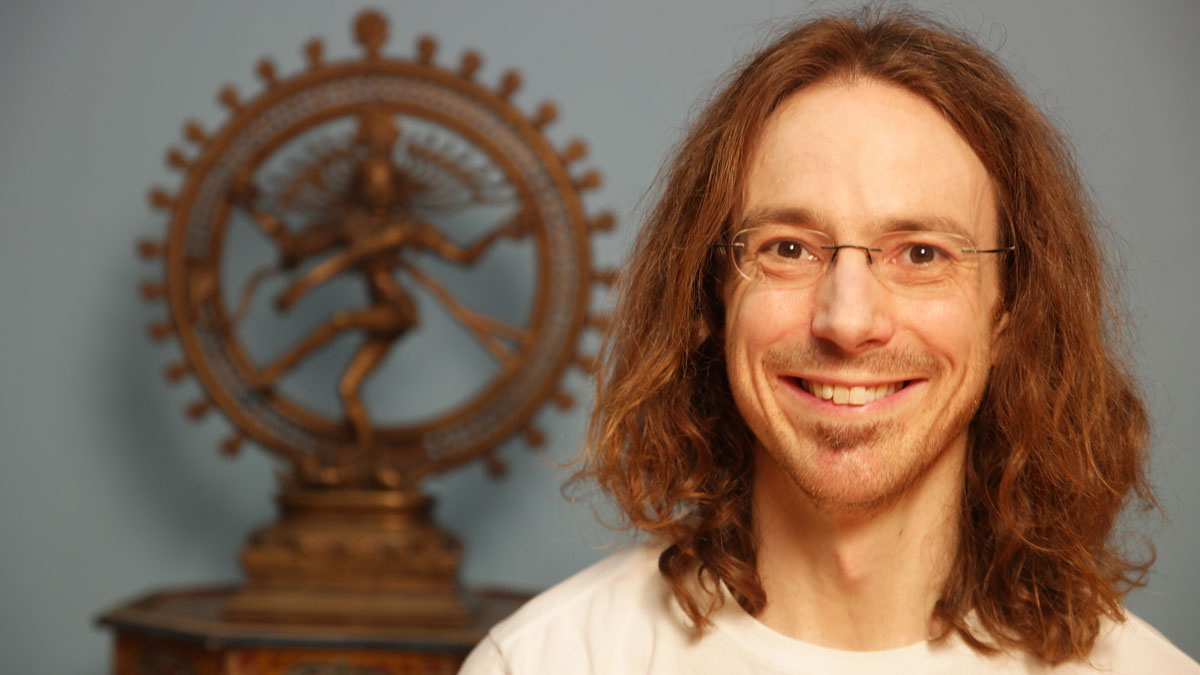Yoga Book Club: Hatha Pradipika
Yoga Book Club: Hatha Pradipika
Sundays, June 16 - July 7
5:00 PM (UK); 12:00 PM (ET); 9:00 AM (PT)
The Hatha Pradipika and physical yoga
An online study group with Daniel Simpson
Sundays, Jun 16 - Jul 7, 2019
5:00 - 6:15 PM (UK)
Hatha Pradipika 1.64-6 (trans. Akers)
What exactly is hatha? In modern yoga usage, it often refers to a slow approach – perhaps in contrast to flow – but originally it covered all aspects of physical practice, from breath-control to arm balances.
Exploring its history together, we will read the fifteenth-century Hatha Pradipika, a comprehensive overview of hatha techniques. We will also examine some earlier sources to see how yoga developed from seated meditation to something more dynamic. Meeting online over interactive video, we will discuss these ideas and how they relate to contemporary yoga, which built on their foundations.
To prepare for each session, we will read one chapter of the Hatha Pradipika in advance. A handout will offer some guidance on themes to consider, drawing attention to significant verses and posing questions. Optional additional reading will also be suggested. These materials will help provide a structure for our discussions. However, everyone is free to contribute as they wish.
The aim of the book club is to make a connection between traditional texts and their modern applications. It is fine to read any translation of the text. The extract here is from a 2002 edition by Brian Akers, which includes the Sanskrit. This is available online, both as an ebook and a paperback.
Format
We meet for four consecutive Sundays for a live session on Zoom. All you need is a stable connection and a browser. However, Zoom’s mobile and desktop apps are recommended.
There will be ample time for questions, and each session will be shaped by people’s interests. You can also ask follow-up questions by email, or in a private Facebook group.
If you can't join us live, you can watch or listen to a recording. We start at 5:00 PM, UK time (12:00 PM in New York and 9:00 AM in California).
Week 1 - ASANA
June 16, 2019
An introduction to the Hatha Pradipika and its objectives, and the context in which they developed. The text explains clearly that success requires dedicated practice, using physical methods to silence the mind. It starts by teaching fifteen postures, half of which are non-seated, with the aim of making the body firm and healthy. However, the ultimate goal is to get absorbed in meditation, as in earlier yogic texts.
Week 2 - PRANAYAMA
June 23, 2019
In contrast to the modern fixation on bodily postures, the defining method in traditional texts is controlling the breath. The Hatha Pradipika calls it the key to success in practice, teaching eight different methods, plus a couple of preliminary purifications and the spontaneous cessation of breathing. Working with breath helps to stimulate subtle inner powers, which are raised up the spine to still the mind.
Week 3 - MUDRA
June 30, 2019
The main physical methods of early hatha yoga are mudras or “seals”, which manipulate breath and other vital energies. First taught as a system in the thirteenth-century Dattatreya Yogashastra, hatha uses energetic “force” to make them ascend. The best known mudras are three “locks”, or bandhas - at the root of the spine, in the abdomen and at the throat. The other mudras include inversions and ways to prevent ejaculation.
Week 4 - SAMADHI
July 7, 2019
The purpose of hatha is to access a state beyond the mind. This has many different names, from “kingly” raja yoga to “non-dual” advaita and samadhi. It can be reached by a range of means, which produce the same outcome. “As long as the meditating mind is unlike the natural state [sahaja - another word for the supreme goal], talk of true knowledge is arrogant, deceitful chatter,” warns the Hatha Pradipika.
About the Facilitator
Daniel Simpson presents ancient texts for modern times.
He teaches courses on yoga philosophy at the Oxford Centre for Hindu Studies, at Triyoga in London, and on teacher trainings.
He holds a Master’s degree from SOAS, University of London, where he studied with some of the world’s leading scholars of yoga.
He is also a devoted practitioner, having first encountered yoga in India in the 1990s. His practical guidebook to yoga philosophy will be published soon.
Endorsements
Student feedback from previous courses.
“Brilliant - really accessible, enjoyable and engaging.”
“Adeptly blends academic rigor, insight and humor.”
“Maybe the best yoga money I have ever spent.”




